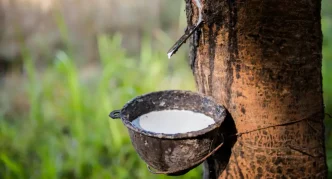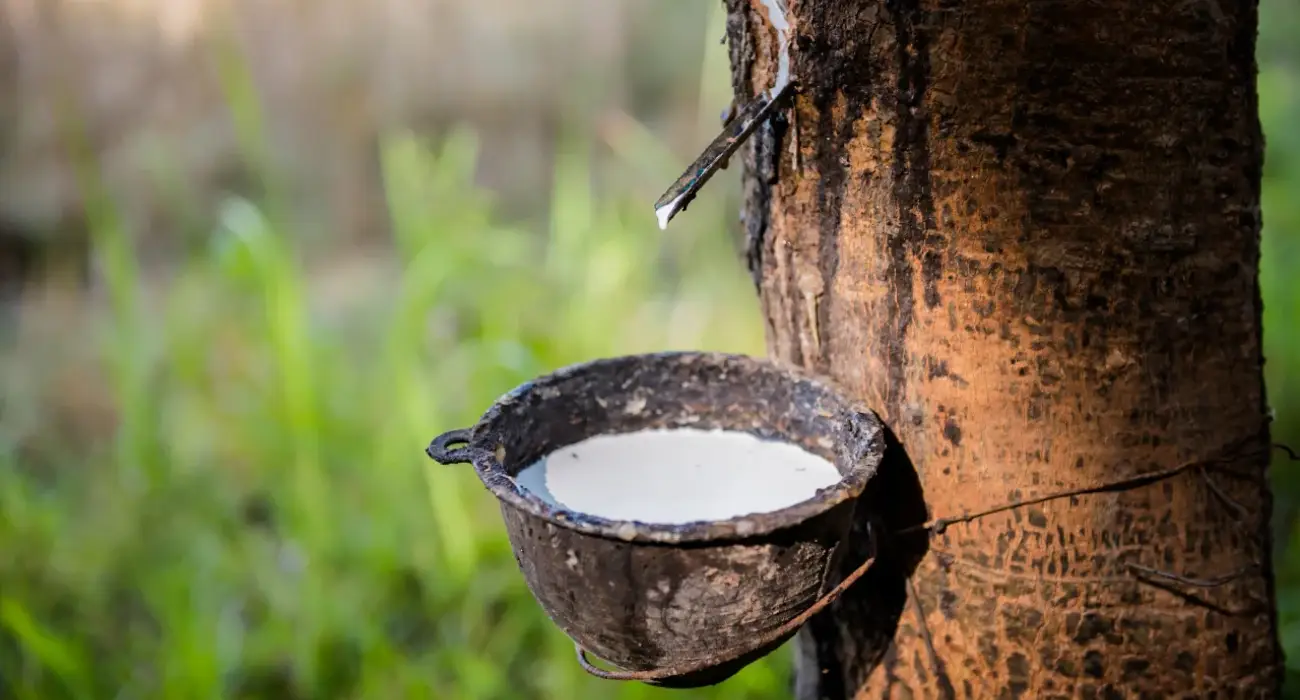In the heart of Kampong Cham province, a quiet revolution is unfolding on the sprawling fields of Boeung Ket rubber plantation. Located in Stung Trang district, this agricultural powerhouse has unveiled ambitious plans to transform Cambodia’s role in the global rubber market by expanding into the production of latex gloves for export. The initiative, driven by a desire to localize processing and retain greater economic benefits within the country, signals a significant shift for an industry long reliant on foreign manufacturers. Beyond the promise of industrial growth, the expansion offers a lifeline to thousands of local workers, including returning migrants, while positioning Cambodia as an emerging player in a competitive international market.
A Strategic Leap Toward Localization
The decision by Boeung Ket to venture into glove manufacturing represents a broader strategy to capture more value from Cambodia’s abundant rubber resources. Currently, the plantation produces around 300 tonnes of latex rubber daily, with plans to double that output to 600 tonnes in the near future. Heng Long, president of the company, articulated the vision to local media with a clear intent to reduce dependency on foreign profiteering. “In half a year or a year, we will produce gloves in our own country. We don’t want foreign companies to profit too much from us” said Long. This move is not merely about production but about reclaiming economic control, ensuring that profits from processing and manufacturing remain within Cambodia’s borders.
Historically, much of Cambodia’s raw rubber has been exported to countries like China and Vietnam for processing into finished goods. By establishing local production facilities, Boeung Ket aims to disrupt this pattern, creating a model that other agricultural sectors in the region might follow. The company has already invested heavily in modern infrastructure—irrigation systems, advanced harvesting technology, and packaging facilities—to meet international export standards. These investments lay the groundwork for a seamless transition into manufacturing, ensuring that the latex gloves produced will compete on quality and price in global markets.
Economic Impacts and Job Creation
One of the most immediate and tangible benefits of Boeung Ket’s expansion is the promise of employment. The company currently employs around 6,000 workers across its diverse operations, which span rubber plantations, fertilizer production, banana cultivation, and even paper manufacturing. With the planned expansion, an additional 1,300 jobs will be created, offering opportunities to local communities and returning migrant workers. Workers at the plantation earn between $13 and $15 per day, with skilled positions commanding higher wages, alongside provisions for food and accommodation. Plans to transition to salaried roles in the future signal a commitment to providing greater job security, a critical factor in a region where informal labor arrangements are common.
Stung Trang district, where the plantation operates, is home to approximately 7,000 migrant workers, many of whom have historically sought employment in neighboring Thailand. District governor Ban Sreng has expressed strong support for Boeung Ket’s initiative, highlighting its alignment with government efforts to encourage these workers to return home. “We expect Heng Long’s company to be able to absorb a large number of them” said Sreng, adding that other private sector entities in the area are also in need of labor. This convergence of industrial growth and labor demand could catalyze a significant reduction in outbound migration, fostering economic stability for families and communities in Kampong Cham province.
Broadening Agricultural Horizons
While rubber remains the cornerstone of Boeung Ket’s operations, the company’s agricultural portfolio is impressively diverse. Beyond latex, it cultivates and exports a range of products, including bananas, durian, Pailin longan, grapefruit, and jackfruit. This multi-crop approach not only mitigates the risks associated with market fluctuations in any single commodity but also positions the company as a key driver of agricultural innovation in Cambodia. Kampong Cham province itself is a vital agricultural hub, with over 265,000 hectares of farmland and 66 percent of its population engaged in farming. Boeung Ket’s investments and expansion plans thus have the potential to reshape the region’s economic landscape, amplifying its role in both domestic food security and international trade.
The company’s focus on meeting global standards through technological upgrades also underscores a forward-thinking approach. Modern irrigation systems ensure sustainable water use, while advanced harvesting and packaging technologies enhance product quality and shelf life. These efforts are crucial for maintaining competitiveness, particularly as Cambodia seeks to expand its footprint in markets like China and Vietnam, where demand for both raw materials and finished agricultural goods remains robust.
Challenges and Opportunities on the Horizon
Despite the optimism surrounding Boeung Ket’s plans, the road to becoming a major player in the latex glove market is not without challenges. The global market for medical and industrial gloves is highly competitive, dominated by established producers in countries like Malaysia and Thailand. Cambodia will need to navigate issues of scale, cost efficiency, and quality assurance to carve out a niche. Additionally, the rapid ramp-up in production—from 300 to 600 tonnes of latex daily—will require significant capital investment and operational expertise. If successful, however, this transition could serve as a blueprint for other Cambodian industries looking to move up the value chain.
Another potential hurdle lies in workforce training. While the creation of 1,300 new jobs is a boon, ensuring that workers—many of whom may lack specialized skills—are adequately trained for roles in glove manufacturing will be critical. The government and private sector may need to collaborate on vocational programs to bridge this gap, ensuring that the expansion delivers on its promise of sustainable employment. Furthermore, the shift to salaried positions, while beneficial in the long term, could introduce short-term financial strain for workers accustomed to daily or weekly payments, necessitating careful planning and communication.
A Broader Vision for Cambodia’s Economy
Boeung Ket’s initiative reflects a growing trend across Cambodia and the wider Southeast Asian region: a push for economic self-sufficiency through localized production. By reducing reliance on foreign processing, the country stands to retain a greater share of the profits generated by its natural resources. This aligns with broader national policies aimed at bolstering industrial capacity and attracting investment in manufacturing. If successful, the latex glove venture could attract further foreign direct investment, particularly from companies seeking to diversify supply chains in the wake of global disruptions like the COVID-19 pandemic, which exposed vulnerabilities in over-reliance on single-source production hubs.
Moreover, the economic ripple effects of this expansion extend beyond Kampong Cham. As more workers find stable employment locally, disposable incomes are likely to rise, stimulating demand for goods and services in surrounding areas. This, in turn, could spur growth in ancillary industries, from retail to transportation, creating a virtuous cycle of development. Government support, as voiced by local officials like Ban Sreng, will be crucial in sustaining this momentum, whether through infrastructure investments, tax incentives, or policies that facilitate the return of migrant workers.
Looking Ahead
As Boeung Ket rubber plantation prepares to take its place on the global stage, the stakes are high not just for the company but for Cambodia as a whole. The transition from raw material exporter to manufacturer of finished goods is a bold step, one that could redefine the country’s economic identity. For the workers of Stung Trang district, the promise of jobs closer to home offers hope of a more stable future. For policymakers, the initiative presents an opportunity to showcase Cambodia’s potential as a hub of innovation and industry. As the first batches of locally produced latex gloves roll off the production line in the coming months, all eyes will be on Kampong Cham, watching to see if this ambitious vision can truly take root.
















